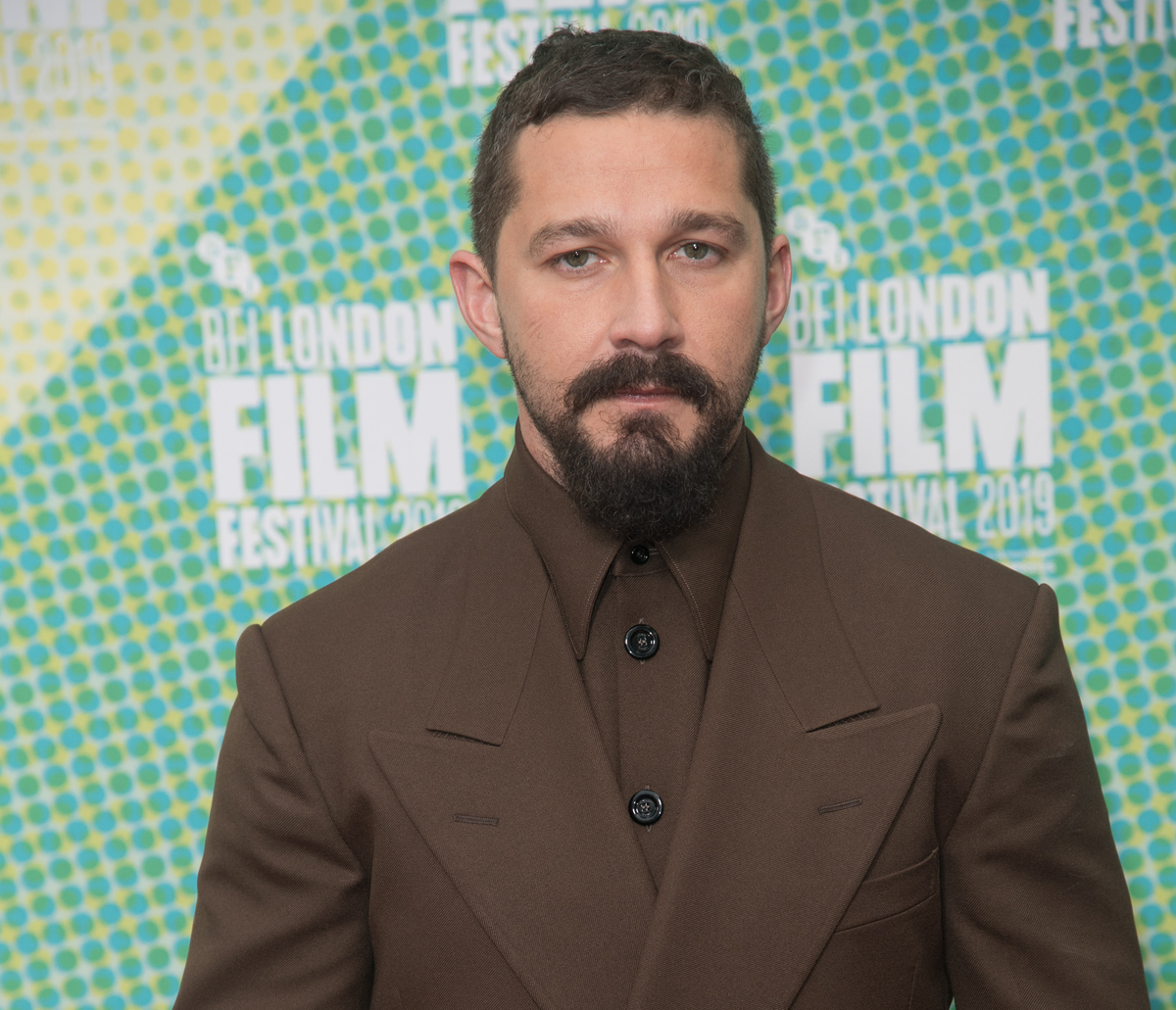There are easier ways.
If you are, let’s say, a rangy 5-feet-11-inches, with an athlete’s build, burnished skin and a heedless, sad-eyed charisma that makes audiences lean in so far they fall over, Hollywood offers smoother paths. If you look, just a little, like a god who overslept, then you don’t have to learn Shoshone or master “My Sharona” or lose weight or gain weight or have panic attacks. And if you have spent years helping a close family member survive an opioid addiction, you don’t have to take a role that asks you to portray a similar addiction, to immerse yourself in that pain and terror and need.
But Taylor Kitsch does.
In “Painkiller,” a six-episode series arriving on Netflix on Aug. 10, Kitsch plays Glen Kryger, the owner of a North Carolina auto repair shop. After Glen is prescribed OxyContin for a workplace injury, he descends into addiction. Slowly, at first, then in free fall.
Kitsch wanted the role. It reunited him with his frequent collaborator, the producer and director Peter Berg. It felt meaningful. And Glen is the kind of part that has defined the latter half of Kitsch’s career, characters who look at first like leading men but slip from that groove because they’re too wounded, too vulnerable, too compromised. Still, he couldn’t read through even the first script without breaking down.
“I’m like, Wait, there’s so much still that’s very raw,” he recalled thinking. “Then I was like, OK.”
Kitsch, 42, was speaking on a morning in late June, on the patio of a house in the mountains above Santa Fe, N.M. Pinyon pines squatted in the red dirt just beyond the patio’s edge. Hummingbirds whirred overhead. A heavy bag, off its chain, slumped in a corner. Kitsch had been here for months, shooting another Netflix show with Berg, “American Primeval,” a series set on the American frontier in the 1850s, due out next year. The 20 pounds he had lost for that role left him skinny in his skinny jeans, sun-roughened and bearded. Moccasins hid a broken toe, mostly healed. (This interview and others were completed before the SAG-AFTRA strike.)
Offscreen, Kitsch’s persona is lighter, looser, more inclined to gesture and joke. But there’s a lonesomeness at the core of him that makes women want to save him and men want to buy him a beer. I am a mother of young children and the temptation to offer him a snack was sometimes overwhelming.
The shoot was almost over (though the strike would halt it a week from completion), and Kitsch’s father, who had been absent for most of his life, had just died. He seemed stranded somewhere between character and self, more inclined to use the first-person when he talked about a role than when he spoke more personally. “You’re hungry,” he would say. “You’re about to melt down.”
Kitsch grew up in British Columbia, mostly with his mother and older brothers. Later, two half sisters were born. Injuries ended a hockey career before it really began, and after a brief and mostly unsuccessful stint as a model, he began auditioning for film roles. In school, he had always liked acting, liked the attention it brought. (“I was the funny guy at school at all costs,” he said.) And he had done some background work as a teenager. He had no formal training, but his looks were enough to land him a few small roles.
Then he auditioned for “Friday Night Lights,” the NBC series set in the world of Texas high school football, which premiered in 2006. Other young men had been shortlisted to play Tim Riggins, the team’s troubled fullback. But in a Hail Mary play, Kitsch’s manager drove him onto the NBC lot. Berg, who developed that series, remembers watching Kitsch step out of the car, the sunlight in his hair.
“And I said, ‘Oh [expletive], this guy’s it,’” Berg recalled. Kitsch, he said, had a strength to him, an old-school stoicism, veined with vulnerability. “But what makes him special is that he contains these energies, he doesn’t lead with them,” Berg said. “He doesn’t work too hard.”
Riggins, a cocky, fatherless athlete from a blue-collar family, mirrored Kitsch’s own background. Berg trusted him to write lines for the character, to suggest motives and moves. The show also gave him space to fail, to learn what would and wouldn’t work on camera. On set, Kitsch gravitated toward the older actors, taking their advice, studying their techniques.
As the show wrapped its fifth and final season in 2011, Kitsch lined up back-to-back-to-back roles in two blockbusters (“John Carter,” “Battleship”) and a sexy thriller (“Savages”), a slate that announced his status as Hollywood’s next leading man. The films all underperformed. He chose smaller films after that and returned briefly to television, starring in the second season of the moody HBO procedural “True Detective.” Back then, in the mid 2010s, he couldn’t always get out of his own way. He sabotaged relationships, he said. He sabotaged himself.
Hollywood didn’t seem to know what to do with him at the time, and Kitsch, who moved first to Texas and then to Montana, didn’t know what to do with Hollywood either. He kept sliding out from under leading man parts. As a kid, he had wanted attention. Now, in his 30s, he found that he wanted to disappear.
“Whatever it is that motivates other people — fame, money, celebrity, more followers, I don’t [expletive] know — it was never like that,” Kitsch said. “I just wanted to be a character actor that buzzed into certain things and, hopefully, made you evoke something.”
In these years, he also found himself caring for one of his younger sisters, Shelby Kitsch-Best, who was struggling with addiction to opioids and other drugs. He took time off, coaxing her into detox and sober living facilities, taking her to the hospital when she relapsed.
“He literally put his life on hold to help me,” Kitsch-Best, now seven years sober, said in a recent interview. “I don’t even know how to put it in words.”
For his next major project, he signed on to play the cult leader David Koresh in “Waco,” a 2018 Paramount limited series. He lost weight, learned guitar, took voice lessons, practiced one of Koresh’s sermons “a thousand-plus” times, he said. Though he gave himself his first panic attack, a month ahead of filming, the preparation worked: Kitsch is unrecognizable in the role.
I asked him if he could perhaps have done less. He didn’t think so. Because he has no training to fall back on, no technique, he feels the need to bring himself as close to a character — physically, psychically — as possible.
“The only thing that eliminates self-doubt for me is prep,” he said. He never wants to look back and think that he could have done more.
Betty Gilpin, who also stars in “American Primeval,” bet that Kitsch, who learned some Shoshone and worked with a medicine man to prepare for his role as a white man raised by a Native tribe, had done more research than anyone else on set. “The purpose of it seems to be so he can be lost in the work and to have freedom in the work,” she said in a recent interview.
“Painkiller” — based on the Barry Meier book “Pain Killer: An Empire of Deceit and the Origin of America’s Opioid Epidemic” and the Patrick Radden Keefe article “The Family That Built an Empire of Pain,” in The New Yorker — is the second prestige series, after “Dopesick,” to limn the opioid epidemic. This project demanded a particular kind of preparation, much of it emotional. Glen is a composite character, a stand-in for the many, many Americans who became addicted to OxyContin after their doctors prescribed it. He is there to illustrate that addiction doesn’t discriminate — it doesn’t care how good you are, how principled, how strong.
“Taylor was the perfect guy to take us on that trip,” said Eric Newman, an executive producer of “Painkiller.” “If it can happen to him, it can happen to anyone.”
Kitsch knew this. It had happened to his sister. Years before, he had written her a letter, telling her that he wished he could take her pain from her. He couldn’t. But in playing Glen, he could honor it, at least. He asked her to accompany him on set, as an adviser, as long as she felt comfortable.
“I was like: ‘Are you sure? You’re not going to relapse if you see me faking using Oxy,’” Kitsch recalled. “She was like, ‘I think I’m good.’”
Glen, a hard worker and a family man, should be the hero of this story. Instead, he’s one of the victims. And Kitsch, who gained 25 pounds for the role (“this guy is a beer and sandwich kind of guy,” he said), forgoes vanity in scenes in which Glen spills urine on himself or struggles to lift a tire or overdoses in a pancake house. Kitsch understood Glen, up to a point. He knows what it is to be in pain — emotional, physical — and to want that pain to go away.
But he asked Kitsch-Best to help him with the particulars, like how someone might look and feel if they were using or in withdrawal. “He really wanted very specific details about what’s going on in someone’s mind and how that would manifest in their body,” she said. “Those things are difficult to watch because it’s so real. But it’s good how real it is.”
With Berg’s blessing, Kitsch-Best filmed a brief cameo as a nurse at a methadone clinic and helped to choreograph a detox scene. “She’d be like, ‘Go bigger, you’d be sweating more,’” Kitsch said. “Bringing her was incredibly cathartic and obviously full circle. I was the emotional mess, and she was just killing it.”
When Berg first sent Kitsch the “Painkiller” script, he did so knowing his family history. And Berg could tell that the shoot was sometimes hard for him. “But that’s where the gold is, when you’ve got an actor who’s that emotionally connected to something,” Berg said. “I knew he wasn’t going to walk away or break down. It wasn’t going to beat him. He would take that emotion and funnel it into Glen. It was a really a beautiful thing to bear witness to.”
Kitsch doesn’t break down much these days, and he enjoys his time outside of work, which wasn’t always a given. Between shoots, he hikes, he fly fishes, he tracks and photographs the wolves that live near his home. (Everyone I spoke to asked if he had told me about the wolves. Boy, had he.) “I’ve started to live a little more,” he said. He also bought 22 acres in Montana that he plans to make available as a sober retreat, with simple A-frame houses, maybe a sweat lodge.
Kitsch works less than he used to. After taking time off to help his sister, he never returned at quite the same pace. “I pride myself on being picky, because it is so much energy and sacrifice,” he said. “If I can’t be all in and really be in service of something and be scared and be uncomfortable, then I don’t want to do that.”
This isn’t necessarily the life that his early career promised or that his looks ordained, but it works for him. Toward the end of our conversation, I told him that when I first entered his name into a search bar, the first question Google suggested was, “What happened to Taylor Kitsch?”
So what did happen? Kitsch gave me one of his unhurried smiles. “What happened?” he said. “I was doing character stuff.”
Though he started out as a pretty boy, he has made himself into an actor, which has meant a narrower path and likely a more arduous one “The people that really know me, or that follow the career will understand it,” he added. “Because I’m not so famous.”
He seemed to like that fine.
















